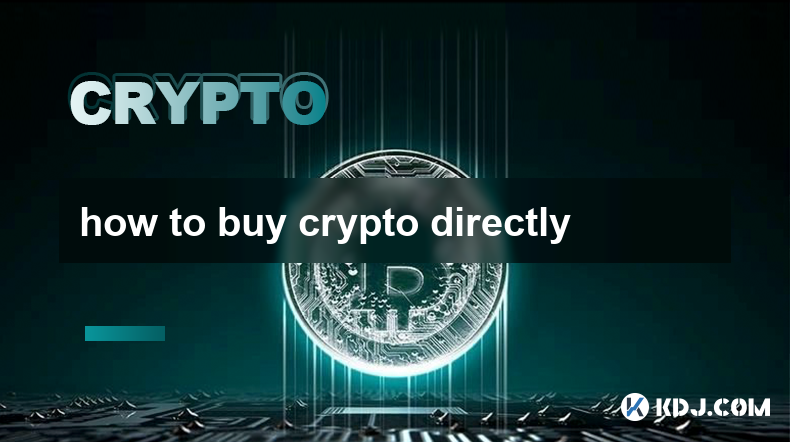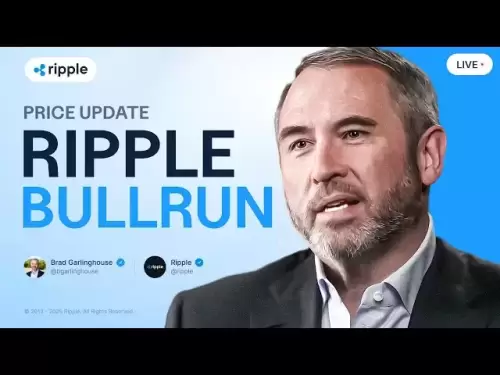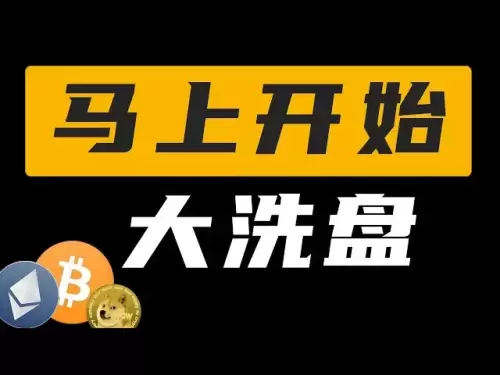-
 Bitcoin
Bitcoin $105,660.2309
1.97% -
 Ethereum
Ethereum $2,552.7306
6.93% -
 Tether USDt
Tether USDt $0.9997
-0.04% -
 XRP
XRP $2.3798
1.13% -
 BNB
BNB $650.3328
1.80% -
 Solana
Solana $168.8054
2.04% -
 USDC
USDC $0.9996
-0.01% -
 Dogecoin
Dogecoin $0.2251
2.44% -
 Cardano
Cardano $0.7419
1.85% -
 TRON
TRON $0.2671
1.61% -
 Sui
Sui $3.8365
1.98% -
 Chainlink
Chainlink $16.0850
6.13% -
 Avalanche
Avalanche $22.3524
1.99% -
 Stellar
Stellar $0.2865
1.54% -
 Hyperliquid
Hyperliquid $26.6074
2.66% -
 Shiba Inu
Shiba Inu $0.0...01463
1.94% -
 Hedera
Hedera $0.1953
2.94% -
 UNUS SED LEO
UNUS SED LEO $8.7047
0.59% -
 Bitcoin Cash
Bitcoin Cash $394.8262
0.57% -
 Toncoin
Toncoin $3.0384
-0.37% -
 Litecoin
Litecoin $98.1332
0.92% -
 Polkadot
Polkadot $4.6385
1.93% -
 Monero
Monero $347.1478
1.61% -
 Bitget Token
Bitget Token $5.1577
0.68% -
 Pepe
Pepe $0.0...01330
2.85% -
 Dai
Dai $0.9998
0.00% -
 Pi
Pi $0.7325
0.06% -
 Ethena USDe
Ethena USDe $1.0003
-0.01% -
 Aave
Aave $264.9425
21.69% -
 Uniswap
Uniswap $5.9747
3.73%
how to buy crypto directly
To buy cryptocurrency directly, choose a reputable exchange like Binance, Coinbase, KuCoin, or Crypto.com, create an account, verify your identity, fund your account, select the desired cryptocurrency, place an order, and confirm the transaction.
Jan 31, 2025 at 07:00 pm

How to Buy Crypto Directly: A Comprehensive Guide
Key Points:
- Choose a reputable crypto exchange: Binance, Coinbase, KuCoin, and Crypto.com are among the most popular and trusted exchanges.
- Create an account and verify your identity: This process typically involves providing personal information, uploading identification documents, and linking a payment method.
- Fund your account: You can deposit funds using bank transfer, credit/debit card, or other supported payment methods.
- Select your cryptocurrency and place an order: The exchange will display a list of available cryptocurrencies. Choose the one you want to buy and enter the amount or quantity you want to purchase.
- Confirm your order and complete the transaction: Review the details of your order and click the "Buy" button. The exchange will process the transaction and add the cryptocurrency to your account.
Detailed Steps for Buying Crypto Directly
1. Choose a Reputable Crypto Exchange
The first step is to choose a reliable crypto exchange. Consider factors such as the exchange's reputation, security measures, range of cryptocurrencies offered, trading fees, and customer support.
- Binance: Binance is the largest crypto exchange in the world, offering a wide selection of cryptocurrencies and trading options. It charges competitive fees and has a solid reputation.
- Coinbase: Coinbase is one of the most user-friendly and secure crypto exchanges. It offers a limited selection of cryptocurrencies compared to Binance, but it makes up for it with easy-to-understand interfaces and high-level security.
- KuCoin: KuCoin is another popular crypto exchange known for its low trading fees and extensive selection of cryptocurrencies. It also supports margin trading, which allows experienced traders to use borrowed funds for potential higher returns.
- Crypto.com: Crypto.com is a well-established crypto exchange that provides a range of products and services, including a Visa debit card linked to your crypto holdings. It has competitive fees and a user-friendly platform.
2. Create an Account and Verify Your Identity
Once you have chosen an exchange, create an account by providing your personal information (name, email address, etc.). Most reputable exchanges require you to verify your identity to prevent fraud and money laundering.
This typically involves uploading your government-issued ID (passport, driving license, etc.) and a photo of yourself holding it. The exchange will review your documents and approve your account within a few days.
3. Fund Your Account
Before you can buy any cryptocurrency, you need to fund your exchange account. Most exchanges support a range of payment methods, including:
- Bank transfer: You can link your bank account to your exchange account and transfer funds directly. This method is typically free, but it may take 1-3 business days for the funds to clear.
- Credit/debit card: You can use your credit or debit card to instantly purchase cryptocurrencies. However, this method may incur higher transaction fees than bank transfers.
- Third-party payment processors: Some exchanges allow you to use third-party payment processors like PayPal or Apple Pay to fund your account. These methods are convenient but may also charge additional fees.
4. Select Your Cryptocurrency and Place an Order
Once your account is funded, you can choose the cryptocurrency you want to buy. The exchange will display a list of available cryptocurrencies, along with their current prices and trading volumes.
To place an order, select the cryptocurrency you want to buy and enter the amount or quantity you want to purchase. You can choose between different order types, such as a market order (instant execution) or a limit order (purchase at a specified price).
5. Confirm Your Order and Complete the Transaction
Review the details of your order carefully, including the cryptocurrency, amount, price, and fees. Once you are satisfied, click the "Buy" button to submit your order.
The exchange will process your order and add the purchased cryptocurrency to your account. You can then store your cryptocurrency in the exchange's wallet or withdraw it to a hardware wallet or external address.
FAQs
- Which cryptocurrency should I buy? The best cryptocurrency for you depends on your investment goals and risk tolerance. Research different cryptocurrencies and consult with financial professionals before making a decision.
- How much should I invest in cryptocurrency? Only invest what you can afford to lose. Cryptocurrencies are highly volatile, and the value can fluctuate significantly in a short period of time.
- How do I store my cryptocurrency safely? You can store your cryptocurrency in the exchange's wallet or withdraw it to a hardware wallet or external address. Hardware wallets are considered safer as they store your private keys offline.
- What are the risks associated with buying cryptocurrency? Cryptocurrencies are decentralized, which means they are not regulated by any central autoridad. This can increase the risk of fraud, scams, and price volatility.
- Where can I learn more about cryptocurrency? There are numerous resources available online and offline to help you learn about cryptocurrency. Consider reading books, articles, whitepapers, and watching educational videos.
Disclaimer:info@kdj.com
The information provided is not trading advice. kdj.com does not assume any responsibility for any investments made based on the information provided in this article. Cryptocurrencies are highly volatile and it is highly recommended that you invest with caution after thorough research!
If you believe that the content used on this website infringes your copyright, please contact us immediately (info@kdj.com) and we will delete it promptly.
- DON token is picking up steam amid the meme coin fireworks as it trades below $0.01
- 2025-05-20 11:35:12
- The Best Real Money Online Casinos in 2023 (Updated)
- 2025-05-20 11:35:12
- SEC Chairman Paul Atkins Wants to Let Registered Broker-Dealers Custody and Trade Cryptocurrencies
- 2025-05-20 11:30:12
- Qubetics Tops the List of Best Tokens to Buy in 2025 as the Crypto Market Shifts to Long-Term Usability
- 2025-05-20 11:30:12
- Big Names Are Breaking Out — But a Political Meme Coin Is Turning Heads
- 2025-05-20 11:25:13
- JP Morgan Predicts Bitcoin Will Outperform Gold in 2025
- 2025-05-20 11:25:13
Related knowledge

What is Ethereum’s Slashing mechanism and how to punish malicious behavior?
Feb 20,2025 at 03:08am
Key PointsOverview of slashingDifferent types of slashing in EthereumIncentives and consequences of slashingIdentifying and reporting slashed validatorsOngoing discussions and potential improvementsEthereum's Slashing Mechanism: Punishing Malicious BehaviorEthereum's slashing mechanism is an essential tool for ensuring network security and punishing mal...

What is the verifier node of Ethereum and how to become a verifier?
Feb 19,2025 at 06:00pm
The Verifier Node of Ethereum: A Comprehensive GuideKey Points:What is a Verifier Node?How to Become a Verifier NodeResponsibilities and Rewards of a Verifier NodeMinimum Requirements for Becoming a Verifier NodePotential Difficulties in Running a Verifier Node1. What is a Verifier Node?A Verifier Node is an independent entity on the Ethereum network th...

What is Ethereum’s staking, and how to participate and earn money?
Feb 19,2025 at 04:37pm
Key Points:Understanding Ethereum's Staking MechanismSteps to Participate in StakingBenefits and Rewards of StakingSecurity and Risk ConsiderationsTechnical Requirements and Hardware OptionsPotential Challenges and Troubleshooting TipsFAQs on Ethereum StakingWhat is Ethereum's Staking?Proof-of-Stake (PoS) is a consensus mechanism used in blockchain netw...

What is Ethereum’s DAO (Decentralized Autonomous Organization) and how does it work?
Feb 20,2025 at 03:12am
Key PointsDefinition and Structure of a DAOGovernance and Decision-Making in DAOsBenefits and Use Cases of DAOsChallenges and Limitations of DAOsWhat is Ethereum's DAO (Decentralized Autonomous Organization) and How Does It Work?Definition and Structure of a DAOA Decentralized Autonomous Organization (DAO) is an innovative governance and management fram...

What is Ethereum's multi-signature wallet and how to improve security?
Feb 20,2025 at 02:18pm
Key Points:Understanding the Concept of a Multi-Signature WalletBenefits and Drawbacks of Multisig WalletsRequirements for Setting Up a Multisig WalletStep-by-Step Guide to Generating a Multisig WalletImplementing Strategies for Enhanced Security1. Understanding the Concept of a Multi-Signature WalletA multi-signature (multisig) wallet in the Ethereum e...

What is Ethereum's oracle and how to provide data for smart contracts?
Feb 21,2025 at 01:30am
Key Points:Understanding the concept of oracles in EthereumExploring different types of oraclesDetailed guide on how to provide data for smart contractsAddressing potential challenges and considerationsWhat is Ethereum's Oracle?Oracles are crucial components in the Ethereum ecosystem, enabling smart contracts to access real-world data and off-chain even...

What is Ethereum’s Slashing mechanism and how to punish malicious behavior?
Feb 20,2025 at 03:08am
Key PointsOverview of slashingDifferent types of slashing in EthereumIncentives and consequences of slashingIdentifying and reporting slashed validatorsOngoing discussions and potential improvementsEthereum's Slashing Mechanism: Punishing Malicious BehaviorEthereum's slashing mechanism is an essential tool for ensuring network security and punishing mal...

What is the verifier node of Ethereum and how to become a verifier?
Feb 19,2025 at 06:00pm
The Verifier Node of Ethereum: A Comprehensive GuideKey Points:What is a Verifier Node?How to Become a Verifier NodeResponsibilities and Rewards of a Verifier NodeMinimum Requirements for Becoming a Verifier NodePotential Difficulties in Running a Verifier Node1. What is a Verifier Node?A Verifier Node is an independent entity on the Ethereum network th...

What is Ethereum’s staking, and how to participate and earn money?
Feb 19,2025 at 04:37pm
Key Points:Understanding Ethereum's Staking MechanismSteps to Participate in StakingBenefits and Rewards of StakingSecurity and Risk ConsiderationsTechnical Requirements and Hardware OptionsPotential Challenges and Troubleshooting TipsFAQs on Ethereum StakingWhat is Ethereum's Staking?Proof-of-Stake (PoS) is a consensus mechanism used in blockchain netw...

What is Ethereum’s DAO (Decentralized Autonomous Organization) and how does it work?
Feb 20,2025 at 03:12am
Key PointsDefinition and Structure of a DAOGovernance and Decision-Making in DAOsBenefits and Use Cases of DAOsChallenges and Limitations of DAOsWhat is Ethereum's DAO (Decentralized Autonomous Organization) and How Does It Work?Definition and Structure of a DAOA Decentralized Autonomous Organization (DAO) is an innovative governance and management fram...

What is Ethereum's multi-signature wallet and how to improve security?
Feb 20,2025 at 02:18pm
Key Points:Understanding the Concept of a Multi-Signature WalletBenefits and Drawbacks of Multisig WalletsRequirements for Setting Up a Multisig WalletStep-by-Step Guide to Generating a Multisig WalletImplementing Strategies for Enhanced Security1. Understanding the Concept of a Multi-Signature WalletA multi-signature (multisig) wallet in the Ethereum e...

What is Ethereum's oracle and how to provide data for smart contracts?
Feb 21,2025 at 01:30am
Key Points:Understanding the concept of oracles in EthereumExploring different types of oraclesDetailed guide on how to provide data for smart contractsAddressing potential challenges and considerationsWhat is Ethereum's Oracle?Oracles are crucial components in the Ethereum ecosystem, enabling smart contracts to access real-world data and off-chain even...
See all articles
























































































